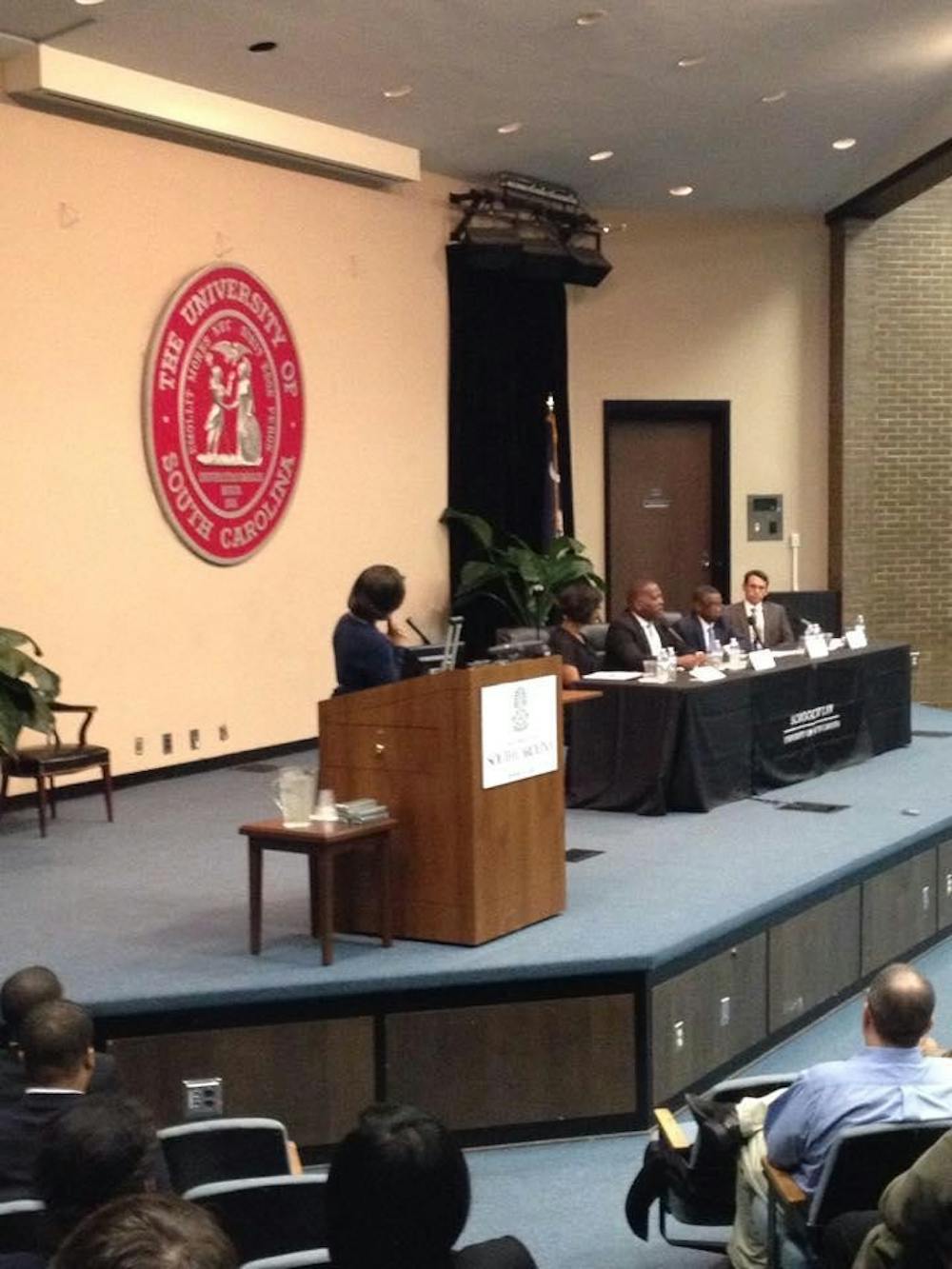As part of USC’s annual recognition of Martin Luther King Jr. Day, the Black Law Student Association (BLSA) is hosting a discussion panel titled “Learning is a gift, even when pain is the teacher” on Thursday at 6 p.m. at the USC School of Law.
The panelists are former Columbia mayor Bob Cole, state Rep. Mia McLeod, retired South Carolina Supreme Court Chief Justice Jean Toal and USC law professor Eboni Nelson. WIS’s Judi Gatson will be moderating the discussion.
USC is home to the Matthew J. Perry chapter of the National BLSA, which has existed for 48 years. Last year, the panel focused on police action in minority neighborhoods.
“We feel as though [education is] a good theme this year given all the events that happened over the last year,” BLSA president and USC law student Joseph Wideman said, referring to events such as the Emanuel Nine shooting and the controversy at the University of Missouri. “It’s just different events that are still rising that we feel as though this theme speaks volumes to, because they’re hurtful to the individuals they impact, the community, just people in general.”
The focus of the panel is to encourage discussion about the ongoing challenges facing underprivileged and minority youths in the current education system. Panelist Eboni Nelson has been teaching law at USC since 2007 and teaches a course about this issue specifically.
“We’re going to talk about obviously Dr. Martin Luther King’s legacy and how that legacy is related to the idea … of education and education equality,” Nelson said. “And to me, in this day and age, there is perhaps no other as important of a civil rights issue [as] the affordance of equal education opportunities to all students.”
Nelson recognized the necessity of beginning high-quality education at a young age to establish a strong foundation for higher education. Once gaps in basic skills have formed, they can be extremely difficult to bridge. Many underfunded schools lack the resources to do so.
“I’ve been very fortunate coming through my education background, because in third grade I was tracked,” Nelson said, referring to the grouping of students into advanced or non-advanced tracks early in their education. “Not everyone is fortunate in that way, and there are a lot of students who deserve, if you will, to be on those higher tracks [who] are not there for reasons that are not always tied to their ability.”
BLSA vice president and USC law student Cameo-Diamond Joseph hopes that the panel will open people’s minds to the issues at hand and the solutions that are available.
“I think the very broad [goal] is just for everyone that comes to come out having learned something,” she said. “In the world that we live in, it’s very easy to maintain how you feel in your own little bubble, and [panels] like this is a great opportunity for someone … to come and learn something or to teach something that others might not be aware of.”
Anthony McCollum, BLSA Community Service Coordinator and USC law student, reiterated that the mission of BLSA and the panel is to encourage understanding and awareness between different demographics.
“I think that goes along hand in hand with our mission statement — promoting that diversity among not only students in law school but also in the community as well,” he said.
It is undeniable that progress has been made since Dr. Martin Luther King Jr. established his legacy of equality, but there are still bridges to gap when it comes to education.
“We feel as though [King’s] vision has not been lost, and people need to keep that in the forefront of their minds and know that life and issues [are] a marathon, not a sprint,” Wideman said. “At the end of the day, [King] had a vision and we have to keep that vision so that we can get to the finish line.”

